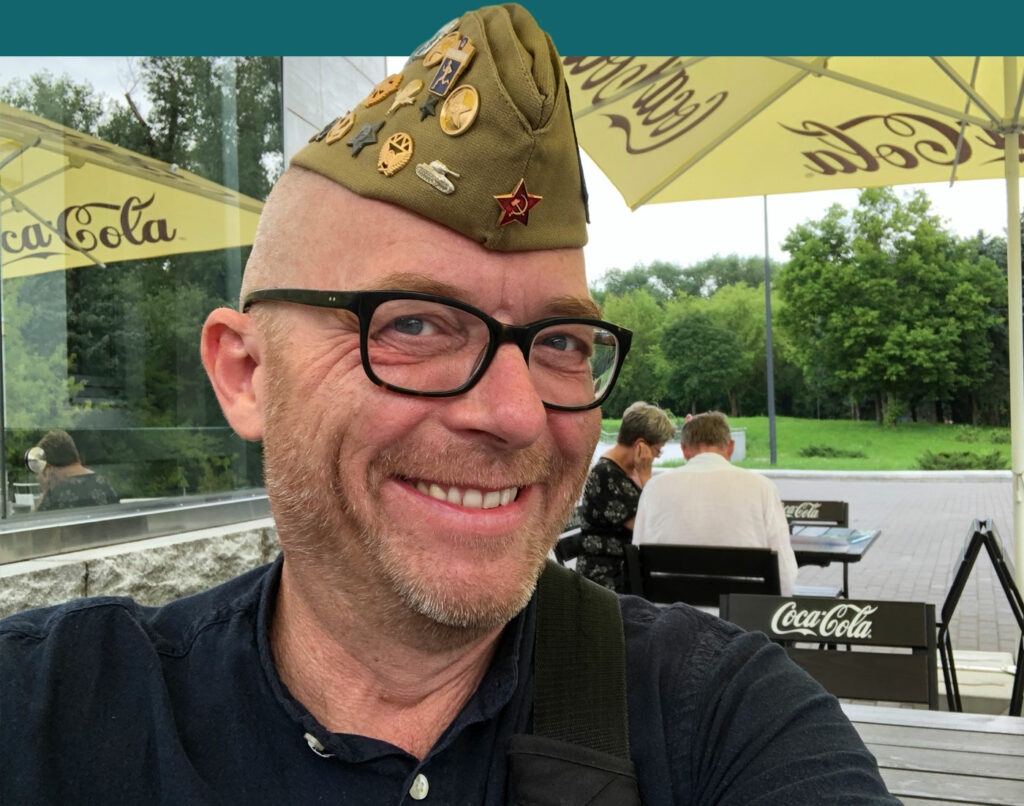NOTE: RECORDED BEFORE UNREST IN BELARUS
This episode was recorded before the unrest in Belarus in the autumn of 2020, when the police cracked down on peaceful demonstrations and arrested several hundred people. Videos from Minsk showed that the police were not afraid to use harsh methods to stop the protesters.
In the episode, you will hear Carsten Skov, who lives in Minsk, say that there are good things about living in a dictatorship. Among other things, he says that it is safe and secure to walk around the city. Today he says something completely different:
“I know I said that it’s safe to walk the streets, but it’s not! They arrest completely random people. So right now, there is absolutely NO good thing about having a dictator in Belarus and it can only go too slowly to get rid of him “.
ДОБРО ПОЖАЛОВАТЬ В МИНСК
At the time I went from Warsaw to Belarus, they issued a 5-day visa on arrival. So, I decided to spend 4 days in the country, since my flight out would have been a few hours too late. This five-day visa on arrival was changed one day after my visit to 30 days. It must have been because I made such a good impression on the government that they changed it.
Belarus It has borders with Poland, Ukraine, Latvia, Lithuania and Russia – and is a fairly unexplored corner of Eastern Europe. The population of Belarus is about 9.5 million people, which puts them on the 93rd place in the world. So somewhere in the middle when it comes to population. But the land mass is quite big so it’s not that densely populated. Minsk, the capital of Belarus, is about 2 million, so Minsk is the 11th most populous city in Europe.
After an hour bus ride from the Airport to the city, I met my Airbnb host, Svetlana. She let me in to a wonderful apartment with a huge bathtub.
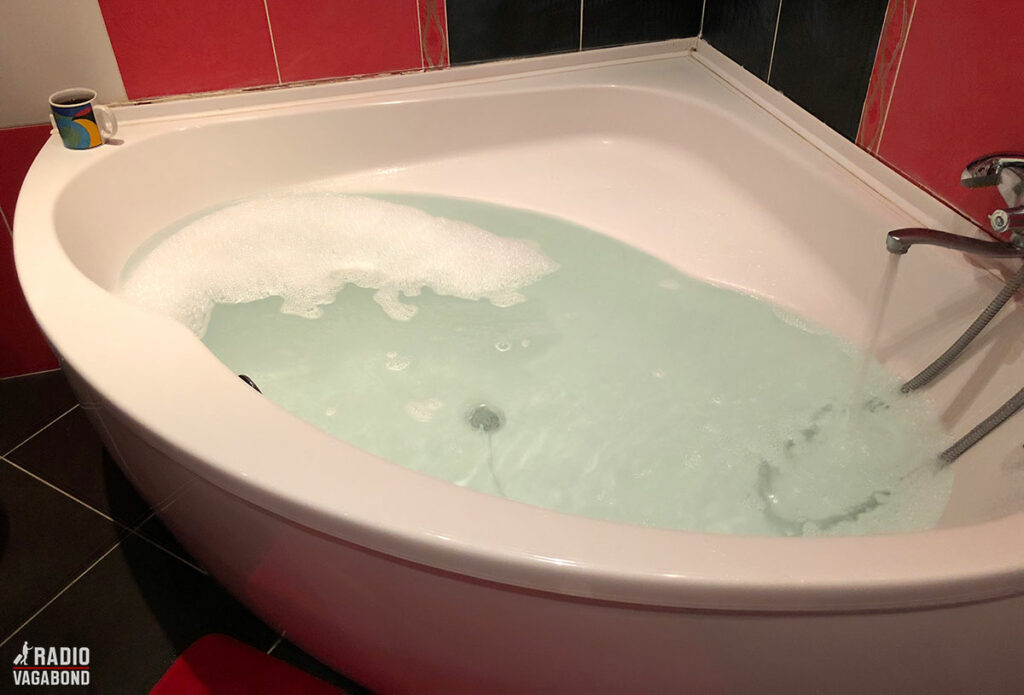
TOURING MINSK WITH A COUNTRYMAN
I have a Danish friend of a friend who lives here permanently. I’ve been in contact with him for a while. And it was actually my plan to go to Belarus in the very start of my journey in 2016… but only because he wasn’t in the country at the time, I decided to go there later.
As we both are Danish, we obviously speak Danish, so you probably won’t be able to understand much. If you – on the other hand do speak the language head over to the Danish version of this podcast.
While we’re walking, we pass the building where the president is working. It’s not the White House of Belarus. He doesn’t live here.
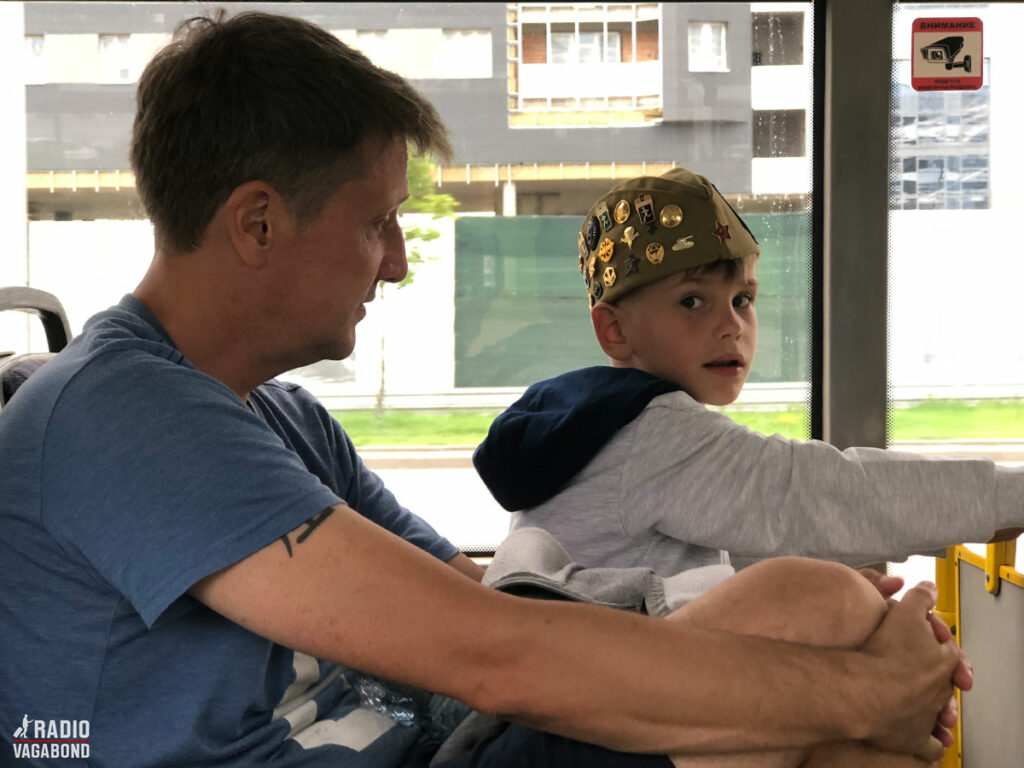
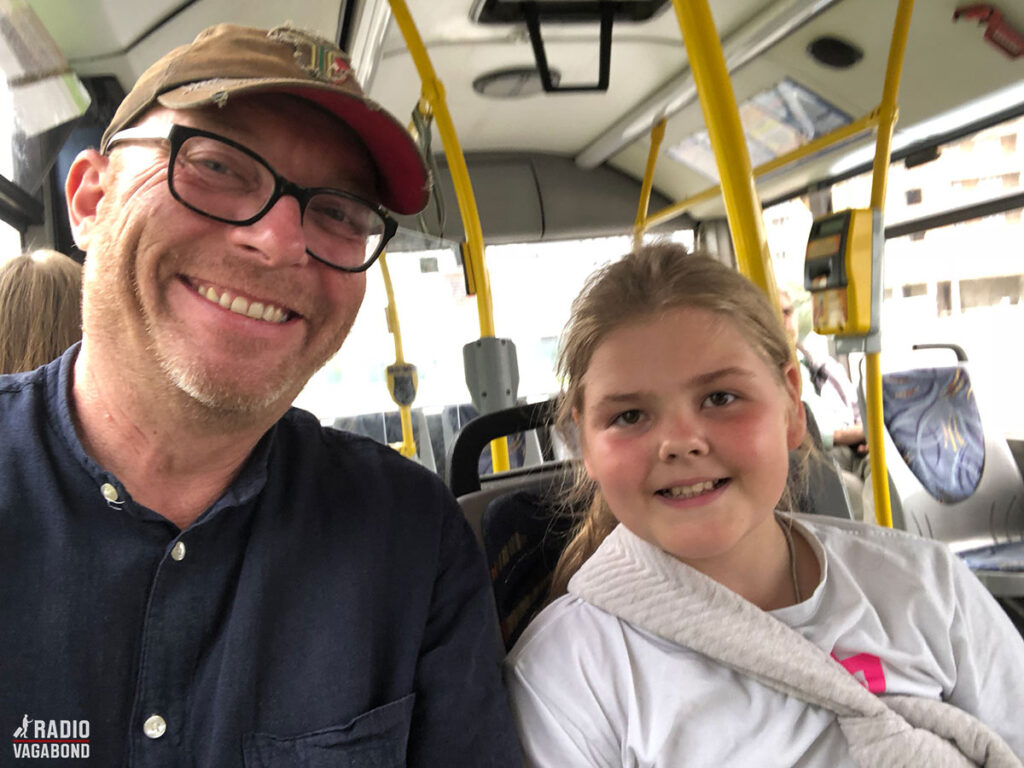
LIVING IN A DICTATORSHIP
Belarus is a dictatorship, and a few days before my visit, I shared a YouTube clip on Facebook with President Lukashenko where he said these words… and I kid you not… “I think it’s better to be a dictator – than being gay”. Yes, he actually said that.
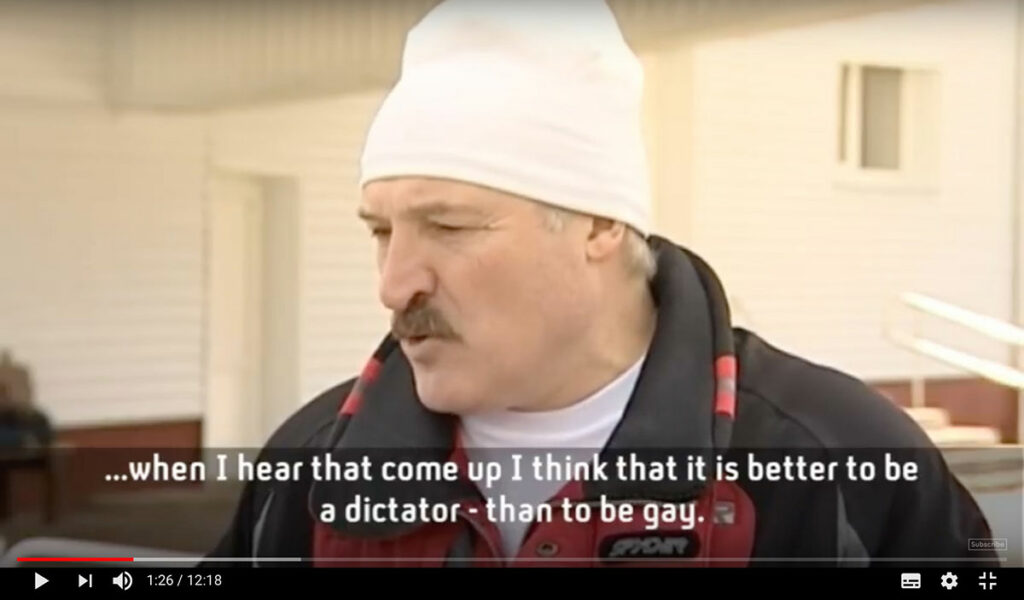
Lukashenko has run Belarus with an iron fist since 1994, and Belarus is often referred to as the last dictatorship in Europe. It’s a country where gay rights are almost non-existent, a country where there’s no free press.
But according to Carsten, it’s not as bad as people think. Yes, there’s no freedom of speech, and the elections might not be totally fair. But it’s not North Korea, he says. There’s still a nice quality of life here, and it’s not something he feels in his daily life.
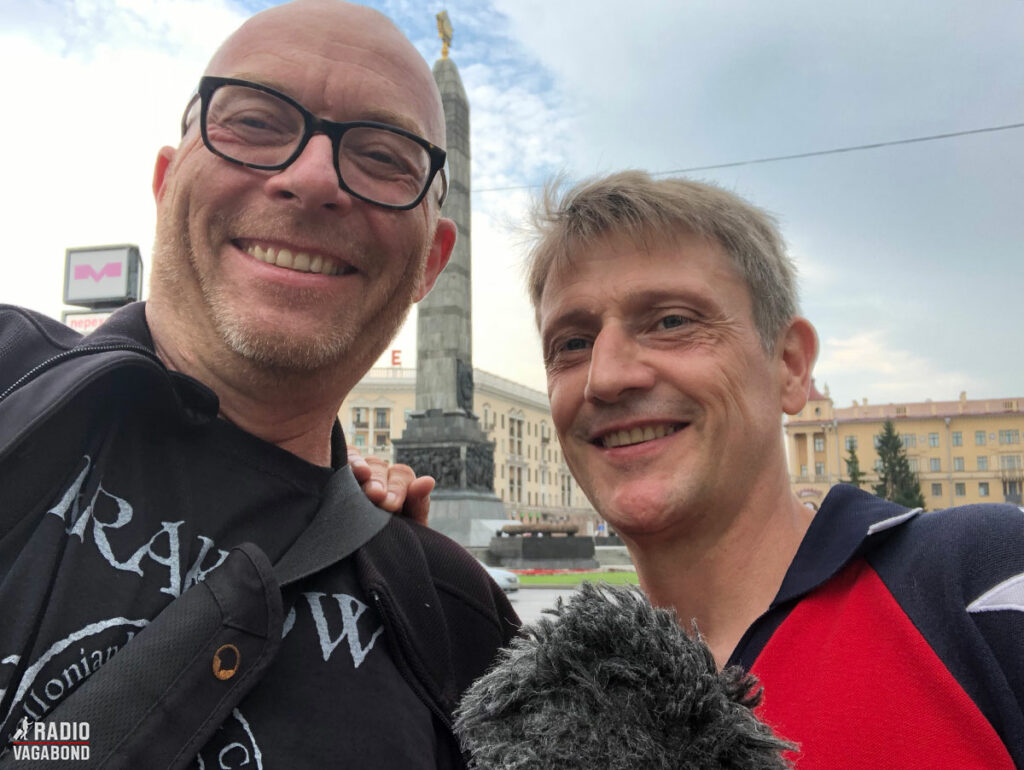
Criticism for going to Belarus
When I posted the video on Facebook and was appalled by the statement about it being better to be a dictator than being gay, someone commented:
” Oh .. how judgmental and prejudiced you are Palle Bo.
When you are so biased and negative, I don’t understand at all that you choose to travel to Belarus.”
This was something I also heard when I went to North Korea. But I don’t see it that way. Going to a country doesn’t mean that I support the leadership and the way things are run.
I’ve also been to the USA during the Trump presidency – even though I’m not a big fan of him. I know, you can’t compare USA to a dictatorship. Not at all, but when I go to a country, it’s to learn things and hopefully make some local friends along the way.
I try to educate myself before, during and after my visit to a country, and I do feel that I also try to keep an open mind. I speak up about the things that I feel is wrong and also talk about the things that are good about my visit. I also did that in my North Korea episode, where I spoke highly of the people.
I’d like to hear your thoughts on this… Is it wrong for me to travel to a country like this?
Make a comment on Facebook.com/theradiovagabond, drop me a line on listener@theradiovagabond.com or record a voice message by clicking on the “talk to me-banner” below.
CARSTEN’S VIEWS ON LIVING HERE
They do have elections here, but according to Carsten the result is more or less decided before. And they do have a parliament but all the people in it are in Lukashenko’s pocket.
When I ask him if he’s afraid to speak out loud about this he says.
“No, as long as I’m not protesting with a megaphone and a sign in the city, nothing will happen. Sometimes I’m a bit tired of the way western media are describing the country. Yes, it is a dictatorship, but many of the countries that we (quote-unquote) are “friendly with” … like Saudi Arabia, The Emirates and China… are also dictatorships.”
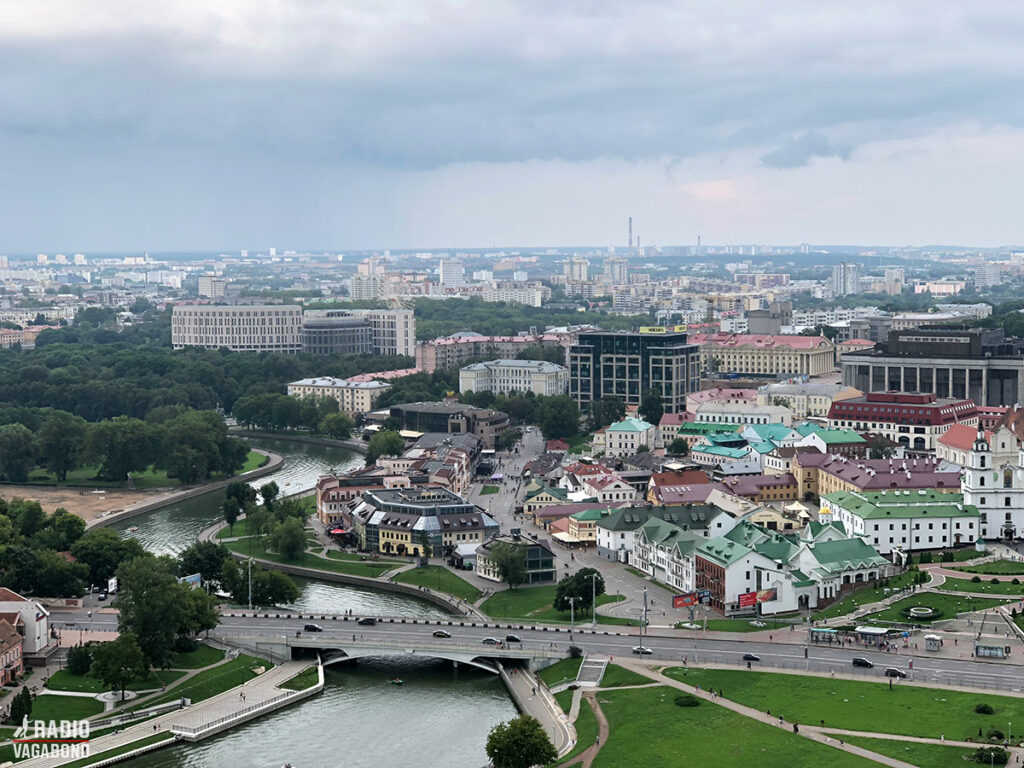
Some things are good in Belarus. Compared to many of the other former Soviet countries, he’s cracking down on corruption – maybe except for himself. Other good things, Carsten mentions are that it’s quite clean here in the city and then it’s safe. There’s no need to be afraid of walking around even at night here. And in the 90’s he came down hard on the Belarusian Mafia.
Carsten actually says: “So, there are good thing about having a dictator”, which makes me laugh – and we decide that this quote will be the title of this episode.
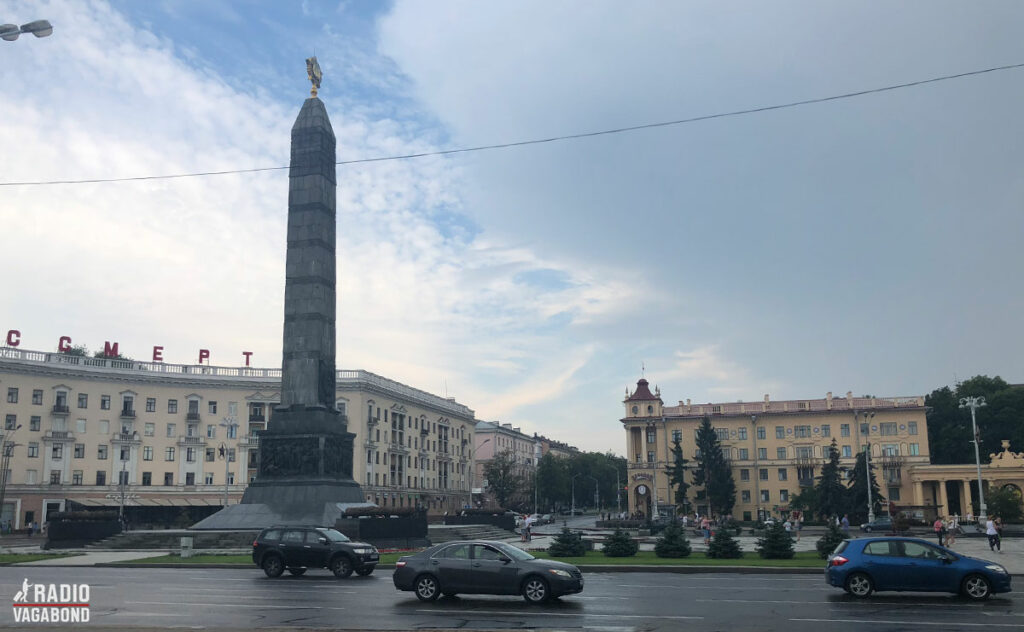
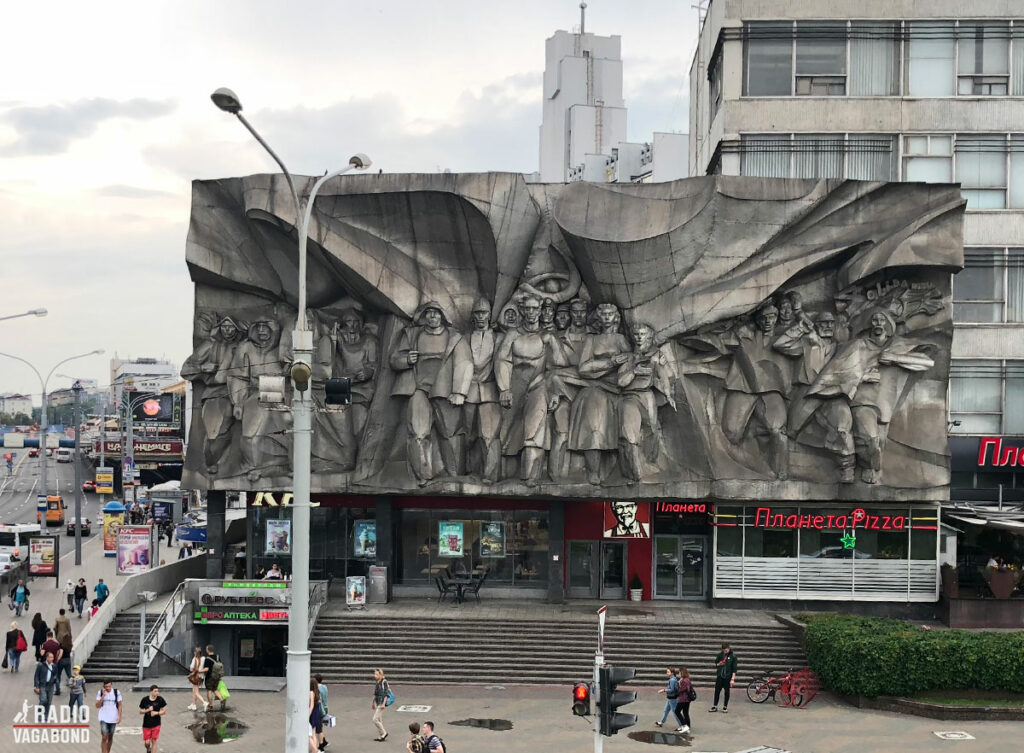
FACTS ABOUT BELARUS
Here are some facts about Belarus that you might not know:
- Around 40% of Belarus is covered by forest – and sometimes referred to as the ‘Lungs of Europe’.
- Belarus is the last country in Europe that still has the death penalty.
- It’s the Las Vegas of Eastern European. When gambling was banned in Russia, a lot of casinos were opened in Belarus, which is one the reasons so many Russians come here.
- Belarus is one of the few countries that does not switch to daylight saving time.
- The country has an extremely low unemployment rate, less than 1%. Beggars and homeless people are also very few here.
- Minsk is a very green and clean city. Not only do they have many parks, but here is also the third largest botanical garden in the world.
- Stretching over 15 kilometres across the capital, Independence Avenue is the country’s longest street. Throughout history, it has not only grown in length and width but has also had 14 name changes. one of the longest streets in Europe, a candidate for inclusion in the UNESCO World Heritage List.
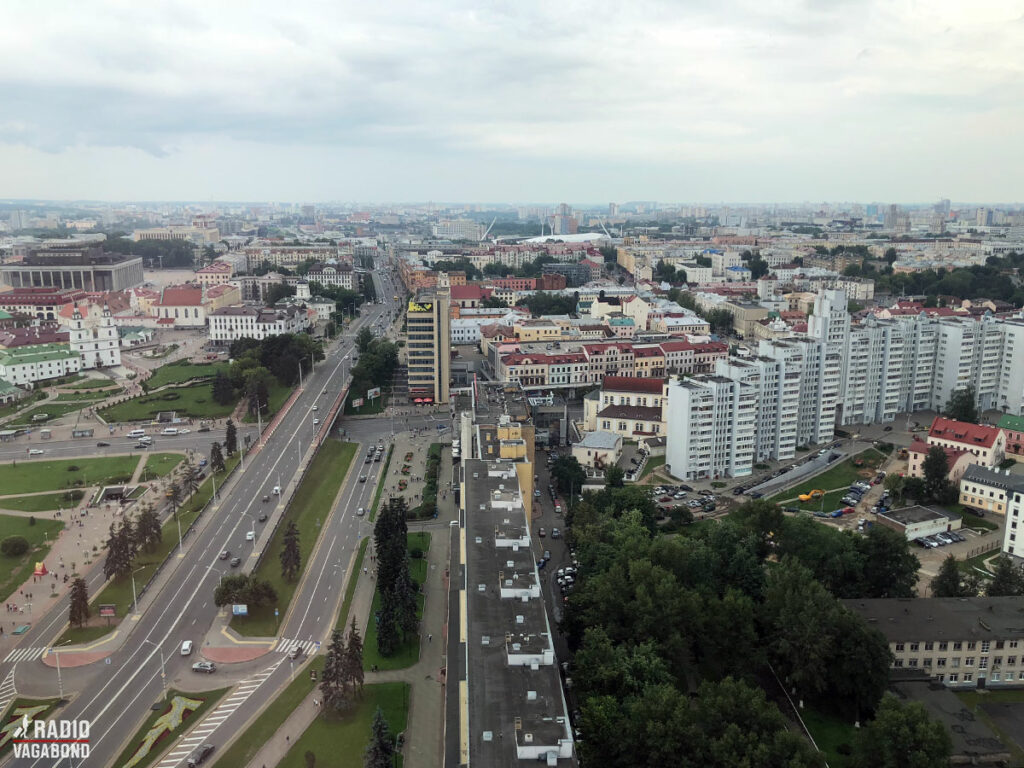
MINSK METRO, GORKY PARK, AND VICTORIA SQUARE
We’re heading down underground to The Minsk Metro. It opened in 1984, and it’s not that big – presently it only consists of 3 lines and 33 stations.
Unlike the Moscow metro, here the signs are also in letters that we can read, which makes riding it a bit easier. Not only is it a fast way to move around Minsk, it’s also cheap: A ticket you can use all days is only around 30 cents.
Victory Square in the historic center of Minsk and it’s the key landmark of Minsk. It’s close to Gorky Park – yes, like Moscow they also have a Gorky Park here, which holds an amusement park.
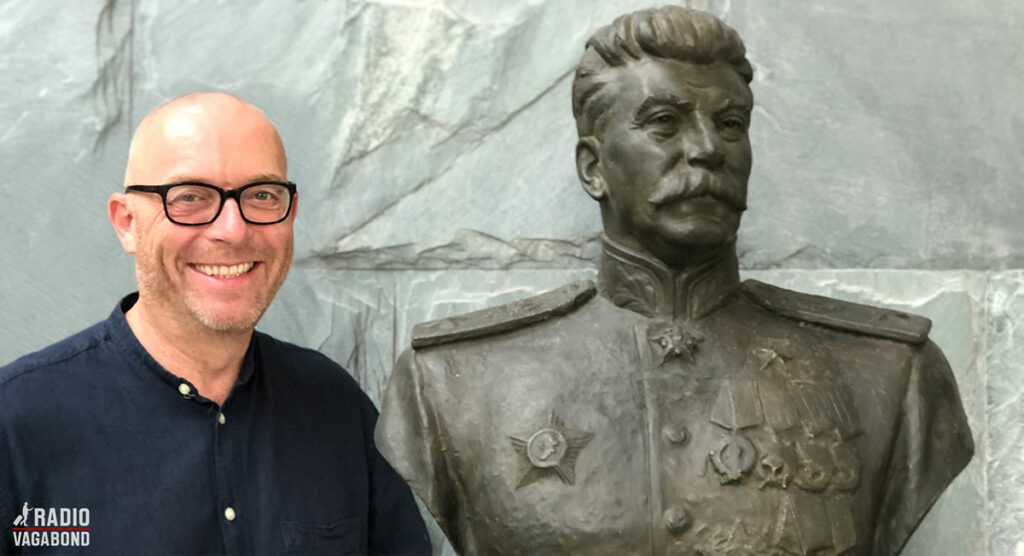
In the middle of the square there’s a monument that was built in 1954 in honour of the soldiers of the Soviet Army and partisans of Belarus, during the Second World War.
Being between Europe and Russia they were really stuck in the middle when Hitler and Stalin were fighting. So, Minsk and a lot of the country has been more or less totally rebuilt after the war.
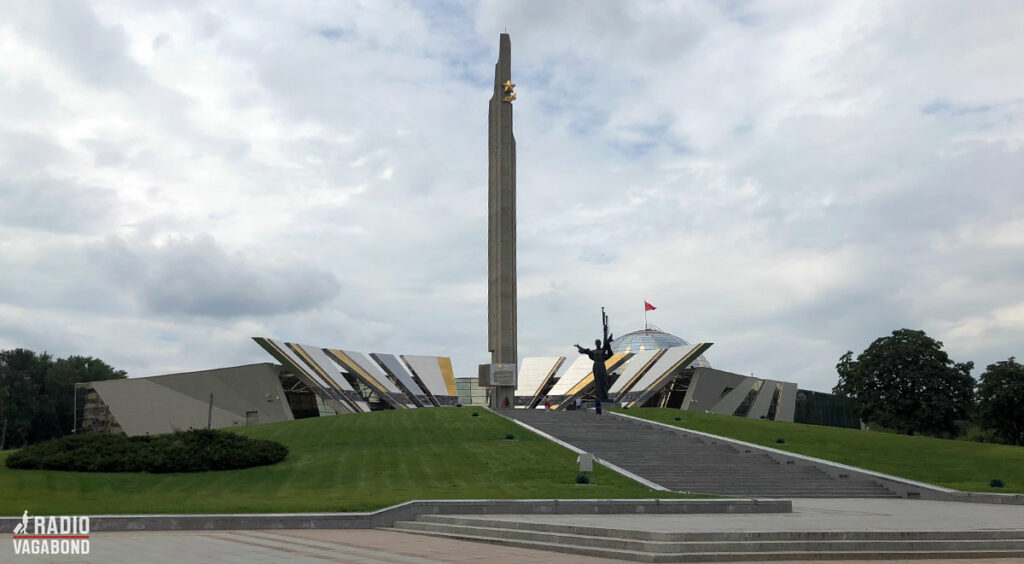
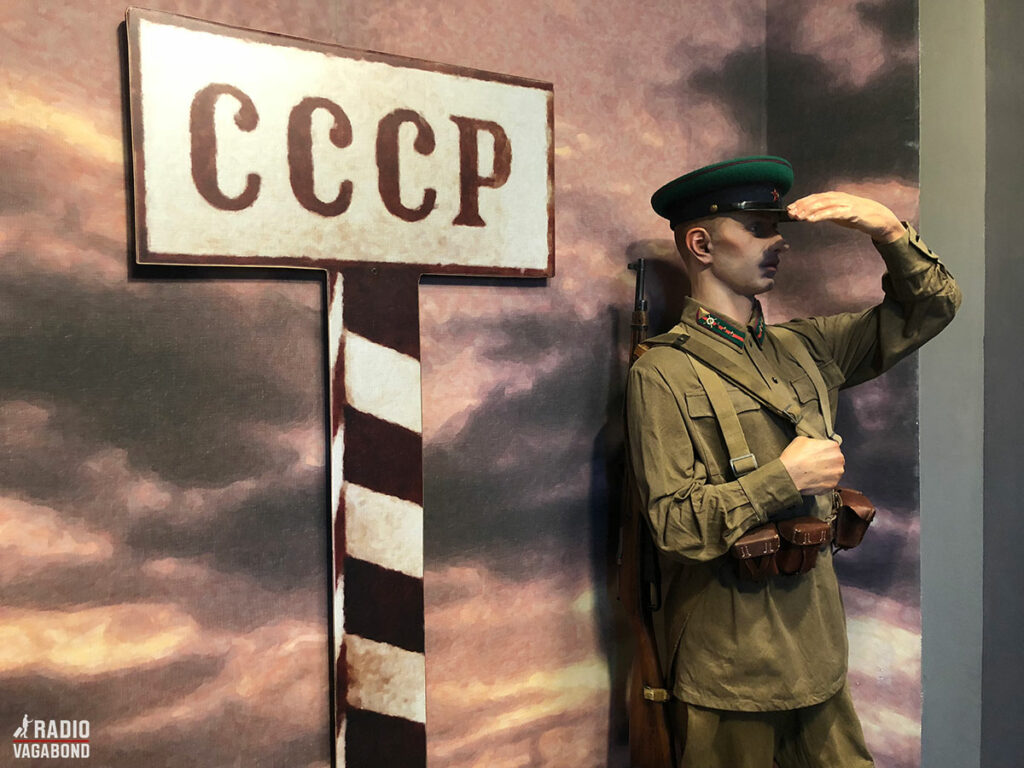
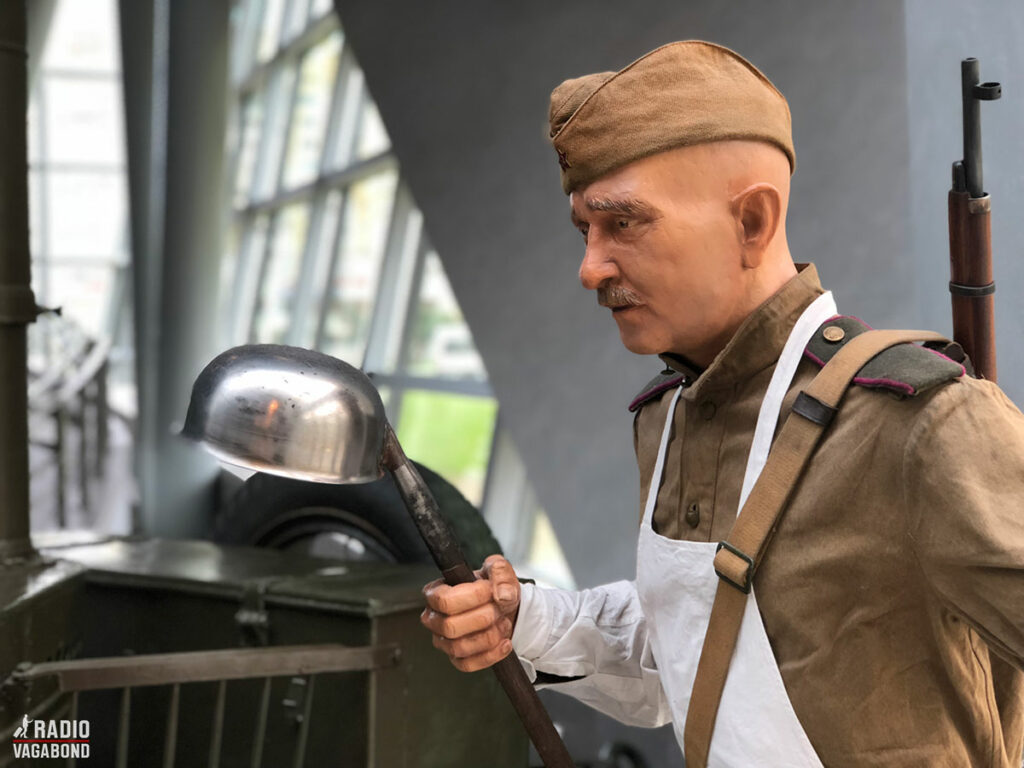
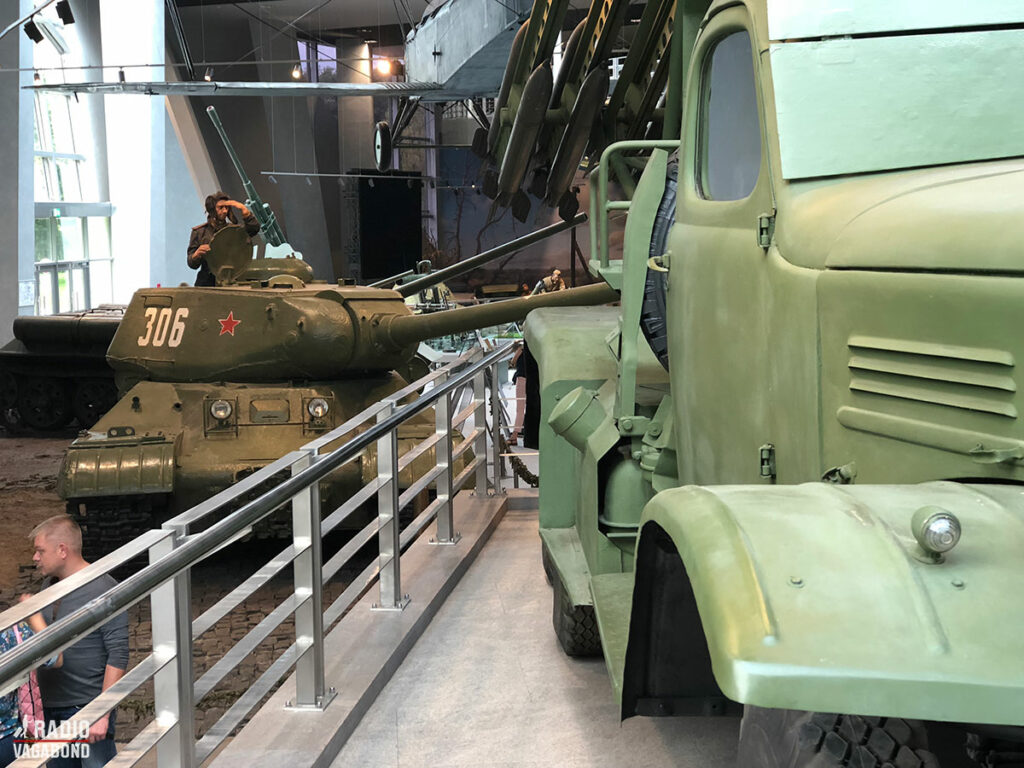
THE COMMUNIST PARTY STARTED HERE
Carsten then takes me to a tiny green house and tells me a story that I didn’t know. In this little house they founded the Russian Social-Democratic Workers’ Party that was the forefather of the Communist Party of the Soviet Union.
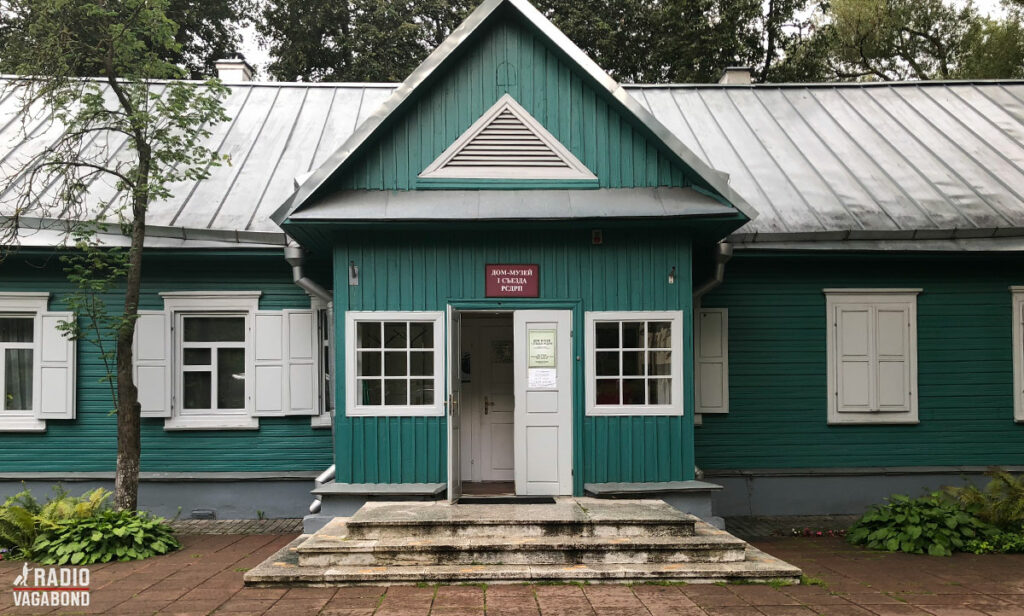
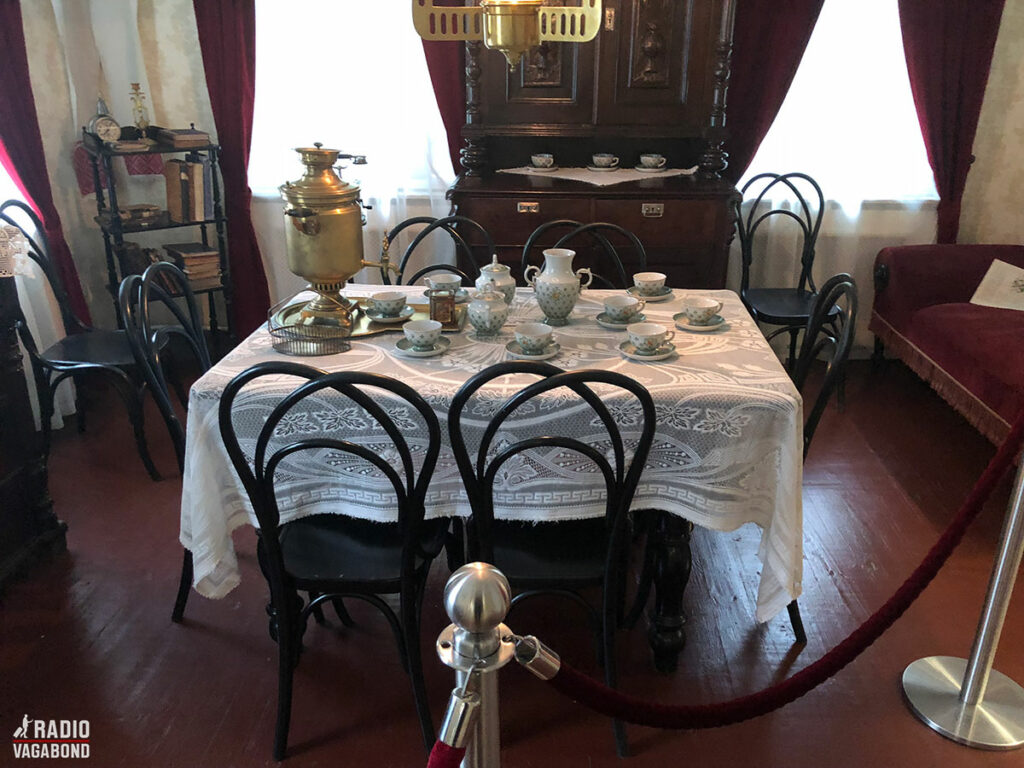
This was all the way back in 1898 – so before the revolution in 1917, for those of you than know your history. And it all started right here in Minsk. Not in Moscow.
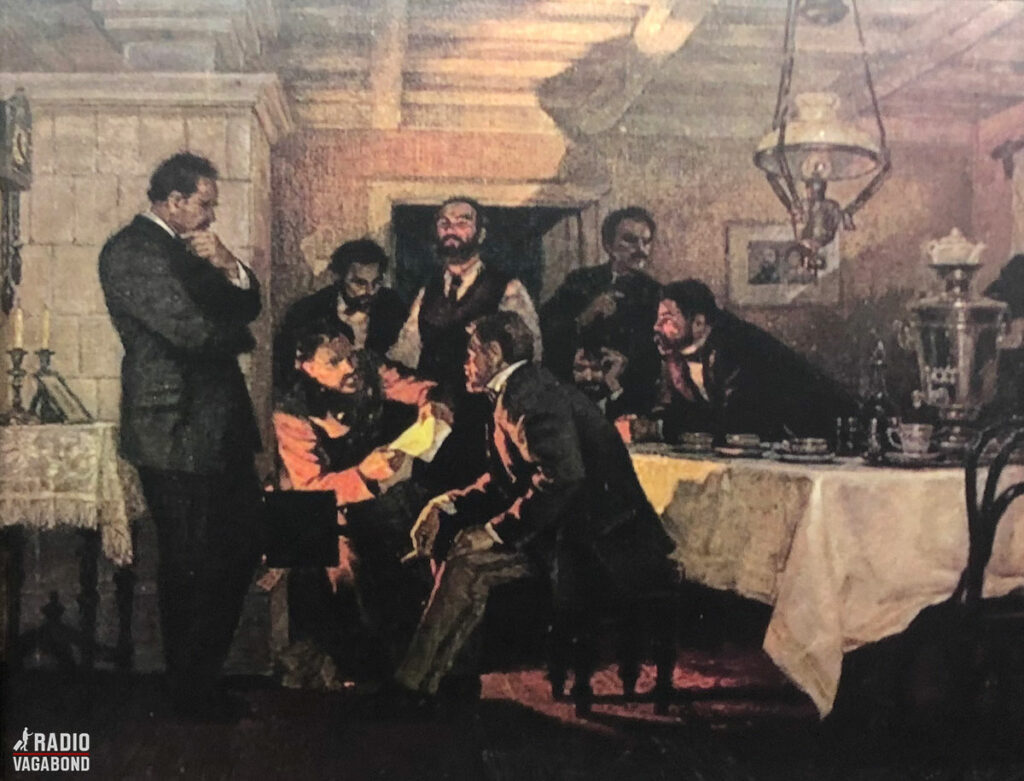
NO BOWLING = KENNEDY ASSASSINATION
And then another thing that I didn’t know. A few meters away in number 4 of the same street lived a guy called … Lee Harvey Oswald, the assassin accused of shooting President John F. Kennedy.
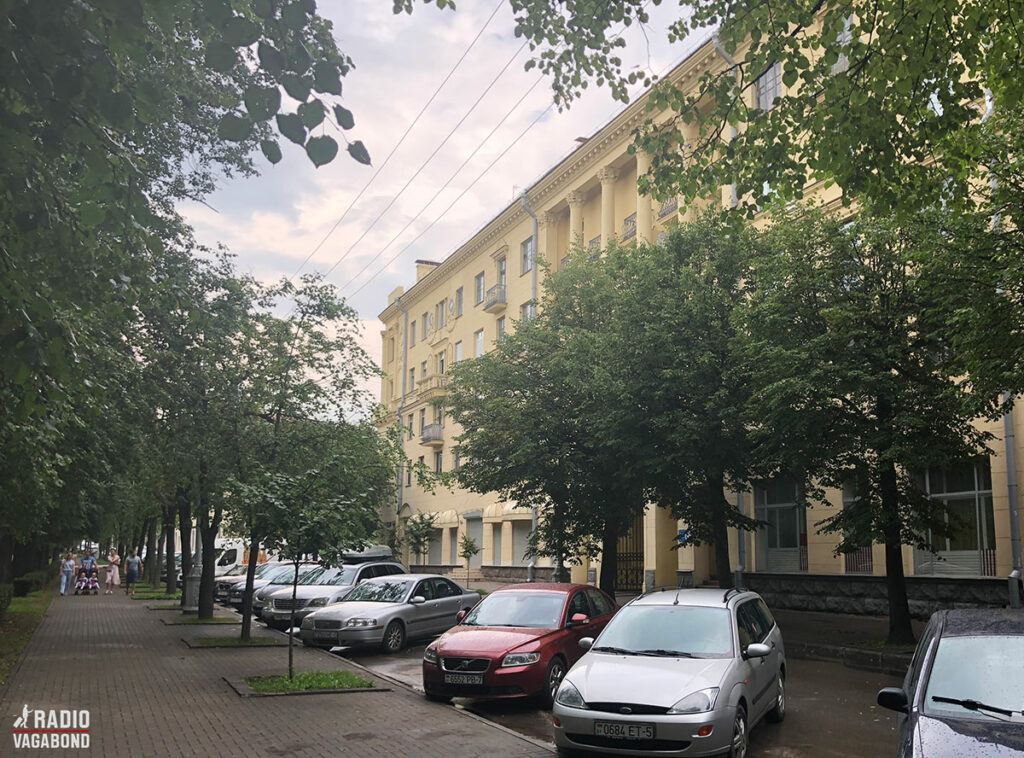
He defected to the USSR in the early ’60s, after he was discharged from the U.S. Marine Corps and ended up living right here in Minsk.
But he didn’t like it here. In his diary he wrote, “I am starting to reconsider my desire about staying. The work is drab, the money I get has nowhere to be spent. No nightclubs or bowling alleys, no places of recreation except the trade union dances. I have had enough.”
Shortly after that, he wrote to the U.S. Embassy in Moscow requesting to get his American passport back, since he never formally renounced his U.S. citizenship.
So, in other words: If there were bowling alleys and nightclubs here at the time… he might have stayed, and Kennedy might never have assassinated. That is if you don’t believe in the conspiracy theories that he didn’t do it.
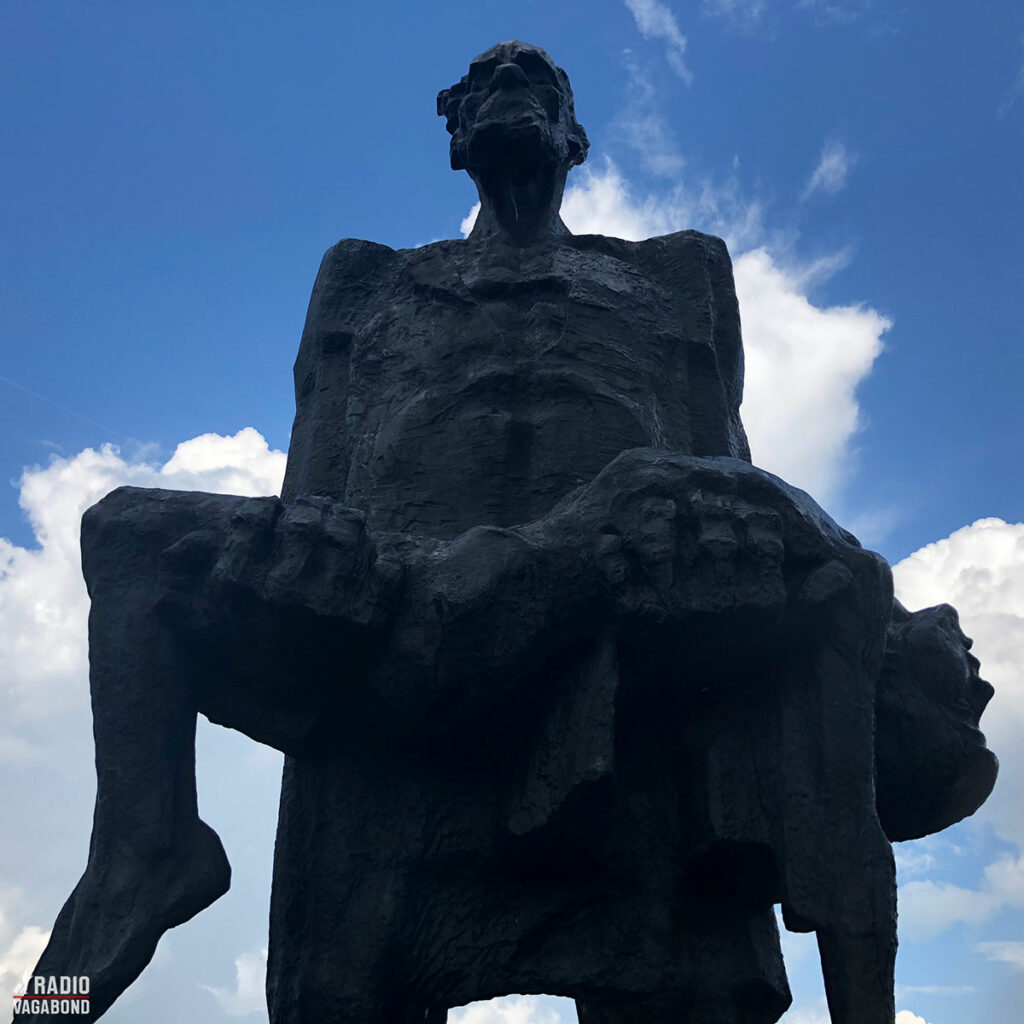
KHATYN MEMORIAL COMLEX
We’re heading 50 km north to Khatyn to visit the Memorial site where a tragic event took place in the Second World War.
Khatyn was a village of 26 houses. On March 22, 1943, almost the entire population of the village was massacred by a Nazi Battalion in retaliation for an attack on German troops by Soviet partisans.
The people here had nothing to do with the attack and were completely innocent. 149 people, including 75 children under 16 years of age, were killed – burned, shot or suffocated in the fire. The youngest baby was only 7 weeks old. The village was then looted and burned to the ground.
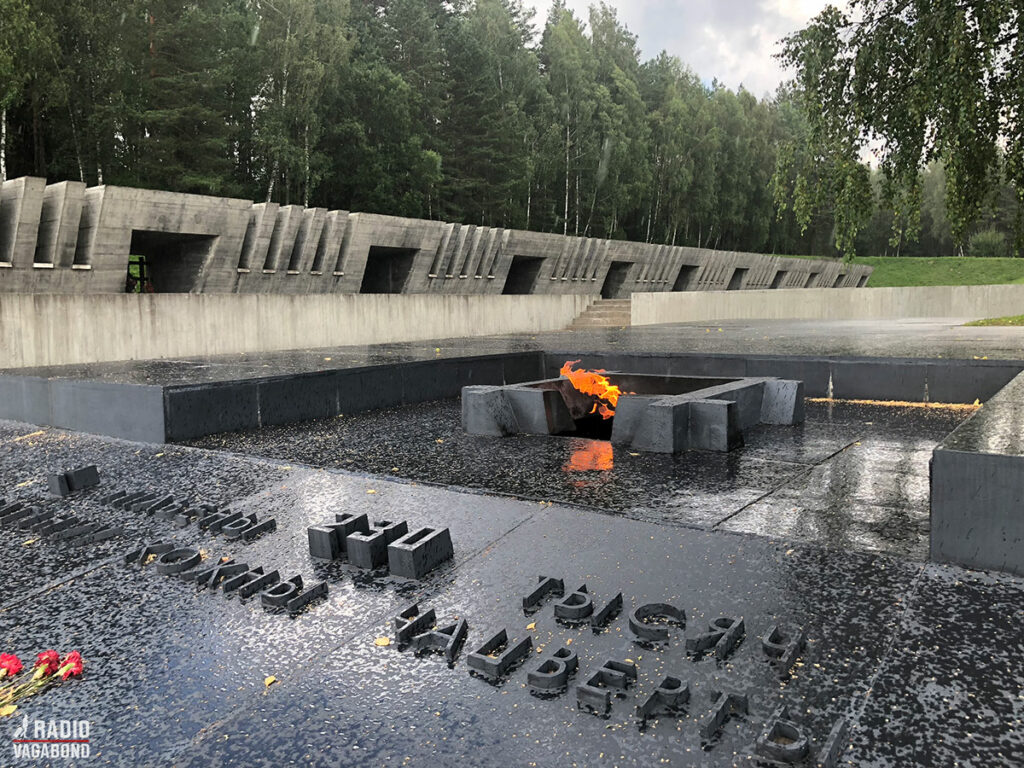
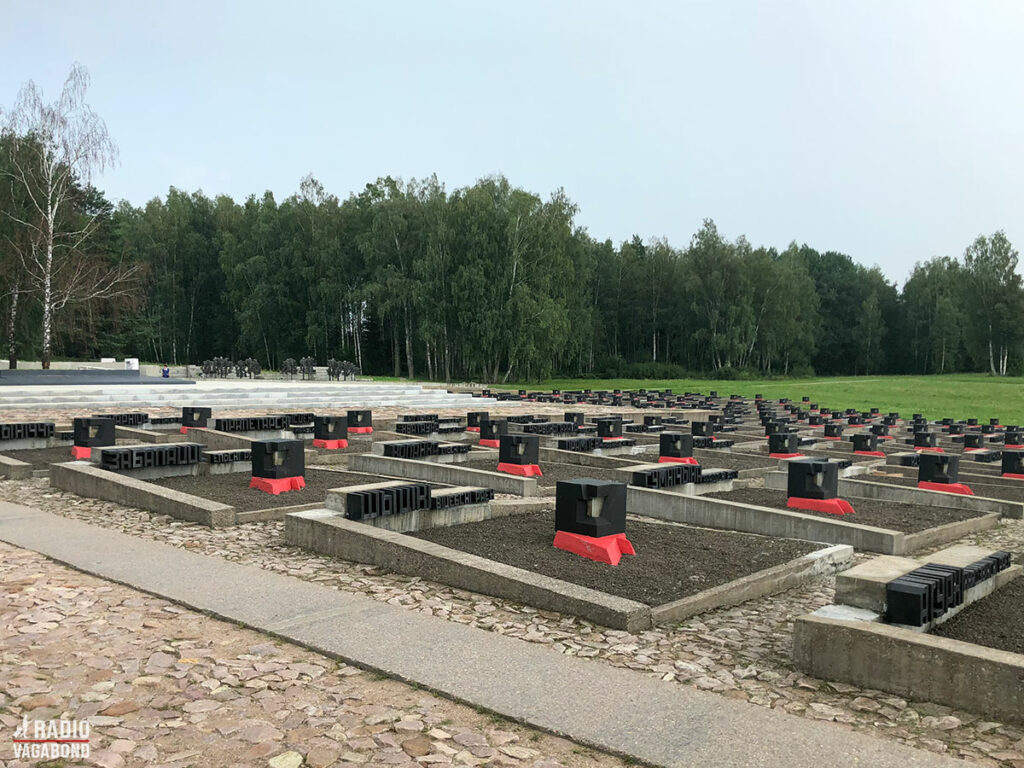
This massacre was not an unusual incident in Belarus during World War II. At least 5,295 Belarusian settlements were burned and destroyed by the Nazis, and often all their inhabitants were killed – some amounting up to 1,500 victims. Many of the villages were burned down many times.
Altogether, over 2,000,000 people were killed in Belarus during the three years of Nazi occupation, almost a quarter of the region’s population.
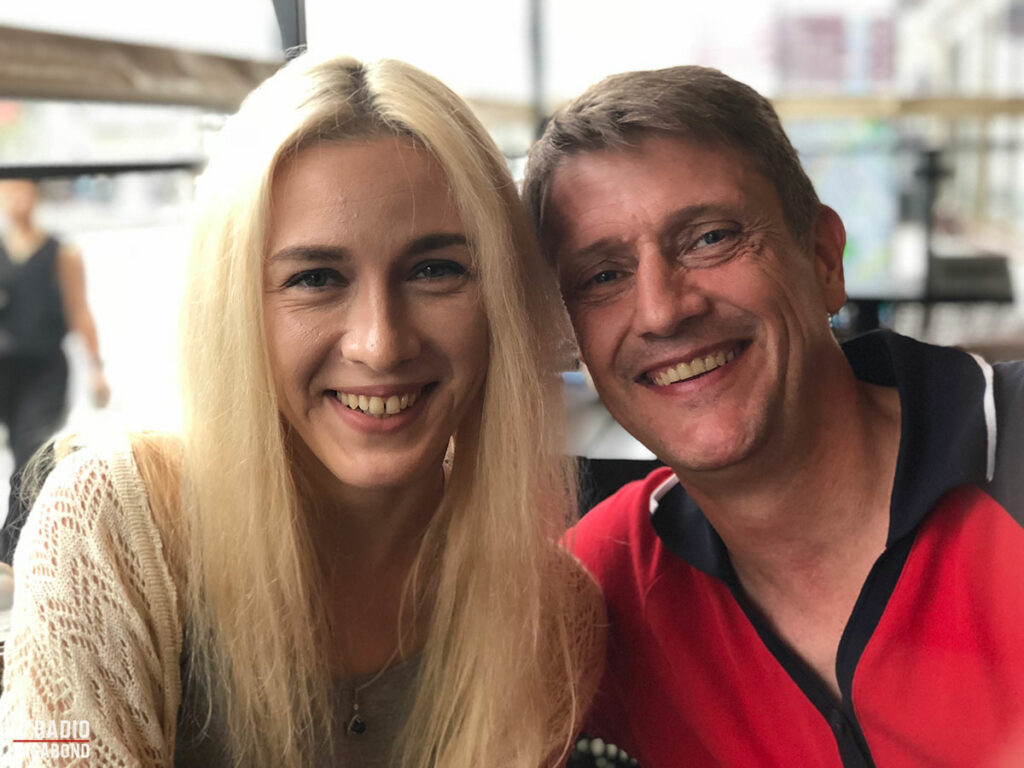
MEET VALERIE FROM MINSK
Back in Minsk, we meet one of Carstens friends. Valerie, who is born and raised here in Minsk. She tells me that she really likes living here, and a few of the things she mentions is that it’s a city that never sleeps – you can always find a cosy bar and a buzzing nightclub any night of the week. Apparently a lot different than when Lee Harvey was here.
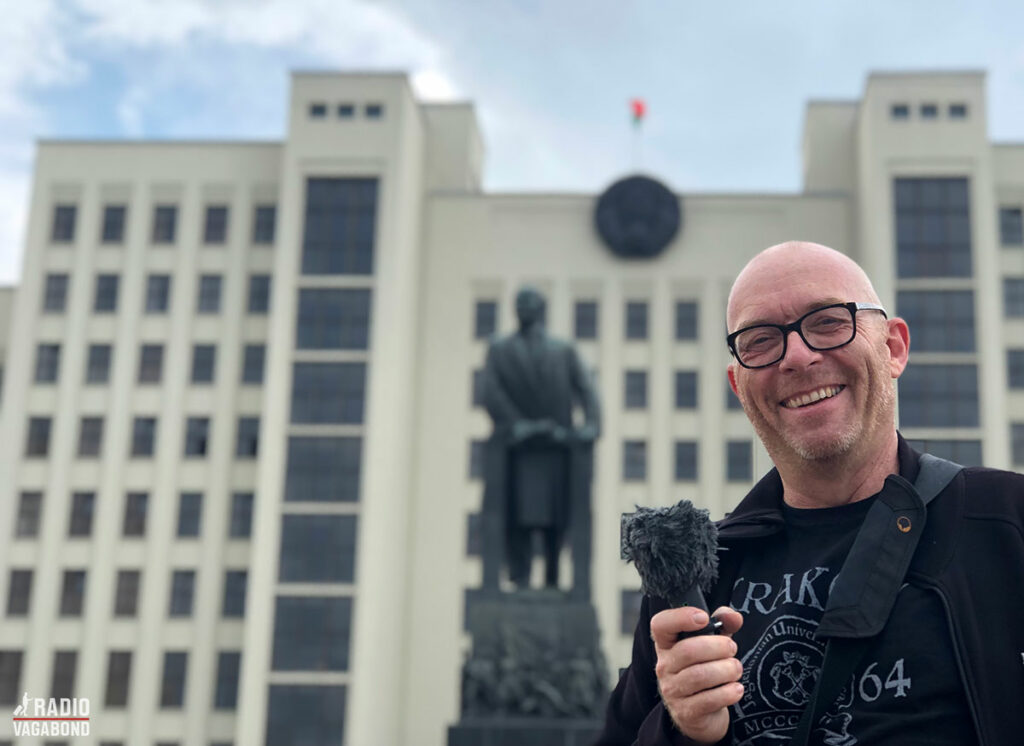
That was all from Belarus, that turned out to be a great experience. Like Albania this wasn’t a country I had high expectations from. But if I look back on all the countries in the eastern part of Europe, I’ve visited in this season, Albania and Belarus are my favourites. Maybe because I didn’t expect much.
My next stop will be the last in this season… I’m going to the Czech Republic and I’m so looking forward to that.
My name is Palle Bo and I gotta keep moving. See ya.
LETTER FROM A LISTENER
I’ve got a letter from a listener… from Dublin, Ireland.
Hi Palle
I discovered your podcast when a friend recommended it to me, and since then I’ve been totally hooked on it. I started by binching your current episodes from Europe, and after that I went back in the archives and listened to your episodes from Asia. I love following your journey, and it inspires me to travel more myself – when the Pandemic lets us.
Normally I listen while I cook, and I’m always looking forward to hearing what happens next.
Keep up the good work,
Ian from Dublin.
I WOULD LIKE TO HEAR FROM YOU!
I really would like to hear from you. Where are you and what are you doing as you listen to this episode? You can either send me an email on listener@theradiovagabond.com or go to TheRadioVagabond.com/Contact. Or send me a voice message by clicking on the banner.
Either way, I would love to hear from you. It’s so nice to know who’s on the other end of this.
SPONSOR
A special thank you to my sponsor, Hotels25.com, who always provide me with the best, most affordable accommodation wherever I am in the world.
